"Kosovo economy depends on status"
Tuesday, 18.12.2007.
19:33

"Kosovo economy depends on status" B92: There are comments that you weren’t successful, you don’t have results, protecting minorities, securing freedom of movement. How do you feel about that? Ruecker: Well, I would first of all look at the facts, and the facts say that we have had a great decrease in the number of instances of Kosovo security-related incidents, the number of, for example, potentially ethnically motivated incidents which we very closely monitor, that number has come down very significantly during the last one or two years. Also I think it is very important that people who want to return, because we’re very concerned about returns, do not quote security any more as the main reason why they should or would not return. It’s now the economy and jobs. So, I think we have moved to a great degree of normalization. B92: How do you feel about an outbreak of violence here in Kosovo? Ruecker: I am confident that we will not see any outbreak of violence neither today nor tomorrow. KFOR is here to do their job. We are here to do our job. UNMIK police, Kosovo Police Service, the people in Kosovo are very smart and they do know that the status of Kosovo can only be solved without resorting to violence and in close cooperation with the international community. B92: But there are announcements from the Albanian National Army and certain individuals that there is going to be an outbreak of violence and actually we don’t hear anything about how you’re going to prevent it, stop it. Ruecker: Well, both organizations are illegal in Kosovo, they’re banned, and I think that what is true is that the longer the status process is protracted, the more this plays into the hands of extremists on both sides, be that the Czar Lazar Guard, be it the ANA, be it whatever, so I think we should have a status solution very quickly. B92: Tell me what you will do regarding a declaration of independence? Ruecker: I will get guidance from New York, we are guided by New York. B92: Have you had any guidelines so far? Ruecker: No, when this situation occurs, we will ask for guidance from New York. B92: Why is Belgrade ignorant towards you? Since the beginning of your mandate you haven’t had any significant contact with leaders in Belgrade. Ruecker: It is true in a way that I have asked for many months to get a meeting with your prime minister. I would have been willing to come to Belgrade, also to meet the president. That was not possible. It is not for me to criticize that, but I think we do have some things which need a discussion, which of course are about the future of Kosovo, which are about the Kosovo Serbs. But I have had some contacts occasionally. B92: Yes, but they say you are pro-Albanian or biased. Ruecker: Well, I’m not. I’m neutral. B92: How can you assure it? Ruecker: I don’t know. You’ll have to make this assessment, but UNMIK is here to implement Resolution 1244 in an unbiased way. B92: Are you doing it? Ruecker: Yes. B92: Do you think Kosovo society is ready for self-governance? Ruecker: Yes, I think we have achieved in the last eight years to establish these institutions for democracy, for the rule of law, for the market economy, and I think Kosovo is now ready to go to the next stage. B92: But is it, bearing in mind the high levels of corruption, also non-existent economy, because the economy has completely run to a standstill, large unemployment rate, inflation? Ruecker: Well, inflation is very low, and the fiscal situation is rather satisfactory. But what we do have is a low growth rate and high unemployment and a trade deficit in foreign trade. I think Kosovo has a chance as other transformation economies to come on a sustainable growth track and get good growth rates, but right now, we are in this vicious circle, and unless we get status I don’t think we’ll see any further significant economic progress. B92: So how long will it take, what do you think, just to get on its feet let’s say? Ruecker: Well it depends on status. Once we get status, and we have these obstacles removed that are status related. For example, the reluctance of foreign direct investors to come and engage in some of our projects right now, because they want to wait until the political situation is clarified. Then I think we could achieve good growth rates relatively soon because you also have to see that Kosovo is part of the larger regional market, you’re not dealing with an isolated place. We’re part of the CEFTA agreement, we’re part of the regional energy community. So, we’re integrated into the regional structures. B92: You say that status would solve all the problems… Ruecker: No, I haven’t said that. I said that we have impediments right now for economic development that are status related and they have to be overcome. B92: Would it be stopped if Serbia imposed sanctions and made constant problems after independence, which is obviously going to happen? Ruecker: Well, we’ll have to cross that bridge when we get to it, but I think that I can say that I am very confident that Kosovo, with its comparative advantages, with its integration into regional structures, with its young population that is educated and partially multi-lingual will have good chances to compete in the international market. B92: Regarding the Transparency International report – you’ve heard about it saying that Kosovo is almost on top regarding the corruption. Does it tell us directly of your work here in Kosovo? Ruecker: Well, we are very active with regard to combating corruption. We have an anti-corruption agency. As we speak, we have more than 40 cases of corruption, sometimes high profile cases, either under intensive investigation or already indicted and at the courts. So, I think a lot is being done. We are usually most successful when we work with our neighbors, both in corruption and in organized crime. I think its very important to see this as a regional problem and we have had some successes recently. B92: Even if someone from the ruling staff is involved in these corruption accusations? Ruecker: Well, accusations is one thing, and, sort of, evidence is another thing. I mean UNMIK and all international organizations have their share of bad apples, and if there is something, it should be investigated and brought to court. But, I think, as we speak now, that is not our major problem. In UNMIK, I’m saying. B92: What is the major problem now? Ruecker: Well, we have to make sure the status process moves forward, that we maintain peace and stability in Kosovo, at the same time that we have to work for the implementation of the famous standards which I report about every three months in the Security Council. So, work is ongoing. B92: The Serbs are afraid about what is going to happen here, the Serbs who have stayed in Kosovo. What is your message to them? Ruecker: This is their home, I think the Kosovo Serb community is a very important segment of this society and I very much encourage the Kosovo Serbs to take part in Kosovo’s institutions. I have indications, and even more than that, that the Kosovo Serbs have been under a lot of pressure recently not to participate in these elections and they have participated to a significant degree. And I think that shows they are willing to take the future into their own hands and also emancipate themselves from Belgrade’s influence, which I think was, and is, still strong. B92: But you’re talking about a small number of people actually. Ruecker: Yes. From a low level, but in absolute terms, the turnout was better than in 2004. B92: But they are constantly complaining that it’s all in words, that nothing is happening out on the field. Ruecker: Yes, we have a difficult situation without any doubt, but when you engage in the institutions, when you work together, only then can you make progress, be it in the economic field, in the social field. For example, in the privatization program. Joachim Ruecker (FoNet, archive) The head of the United Nations Interim Administration Mission in Kosovo, UNMIK, German diplomat Joachim Ruecker, spoke to our journalist in Pristina about what can be expected in case of a unilateral declaration of the province's independence, but also about the economy there. Guest: Joachim Ruecker Journalist: Nikola Radisic "Once we get status, we will have these obstacles removed that are status related, for example, the reluctance of foreign direct investors to come and engage in some of our projects right now, because they want to wait until the political situation is clarified."
"Kosovo economy depends on status"
B92: There are comments that you weren’t successful, you don’t have results, protecting minorities, securing freedom of movement. How do you feel about that?Ruecker: Well, I would first of all look at the facts, and the facts say that we have had a great decrease in the number of instances of Kosovo security-related incidents, the number of, for example, potentially ethnically motivated incidents which we very closely monitor, that number has come down very significantly during the last one or two years. Also I think it is very important that people who want to return, because we’re very concerned about returns, do not quote security any more as the main reason why they should or would not return. It’s now the economy and jobs. So, I think we have moved to a great degree of normalization.
B92: How do you feel about an outbreak of violence here in Kosovo?
Ruecker: I am confident that we will not see any outbreak of violence neither today nor tomorrow. KFOR is here to do their job. We are here to do our job. UNMIK police, Kosovo Police Service, the people in Kosovo are very smart and they do know that the status of Kosovo can only be solved without resorting to violence and in close cooperation with the international community.
B92: But there are announcements from the Albanian National Army and certain individuals that there is going to be an outbreak of violence and actually we don’t hear anything about how you’re going to prevent it, stop it.
Ruecker: Well, both organizations are illegal in Kosovo, they’re banned, and I think that what is true is that the longer the status process is protracted, the more this plays into the hands of extremists on both sides, be that the Czar Lazar Guard, be it the ANA, be it whatever, so I think we should have a status solution very quickly.
B92: Tell me what you will do regarding a declaration of independence?
Ruecker: I will get guidance from New York, we are guided by New York.
B92: Have you had any guidelines so far?
Ruecker: No, when this situation occurs, we will ask for guidance from New York.
B92: Why is Belgrade ignorant towards you? Since the beginning of your mandate you haven’t had any significant contact with leaders in Belgrade.
Ruecker: It is true in a way that I have asked for many months to get a meeting with your prime minister. I would have been willing to come to Belgrade, also to meet the president. That was not possible. It is not for me to criticize that, but I think we do have some things which need a discussion, which of course are about the future of Kosovo, which are about the Kosovo Serbs. But I have had some contacts occasionally.
B92: Yes, but they say you are pro-Albanian or biased.
Ruecker: Well, I’m not. I’m neutral.
B92: How can you assure it?
Ruecker: I don’t know. You’ll have to make this assessment, but UNMIK is here to implement Resolution 1244 in an unbiased way.
B92: Are you doing it?
Ruecker: Yes.
B92: Do you think Kosovo society is ready for self-governance?
Ruecker: Yes, I think we have achieved in the last eight years to establish these institutions for democracy, for the rule of law, for the market economy, and I think Kosovo is now ready to go to the next stage.
B92: But is it, bearing in mind the high levels of corruption, also non-existent economy, because the economy has completely run to a standstill, large unemployment rate, inflation?
Ruecker: Well, inflation is very low, and the fiscal situation is rather satisfactory. But what we do have is a low growth rate and high unemployment and a trade deficit in foreign trade. I think Kosovo has a chance as other transformation economies to come on a sustainable growth track and get good growth rates, but right now, we are in this vicious circle, and unless we get status I don’t think we’ll see any further significant economic progress.
B92: So how long will it take, what do you think, just to get on its feet let’s say?
Ruecker: Well it depends on status. Once we get status, and we have these obstacles removed that are status related. For example, the reluctance of foreign direct investors to come and engage in some of our projects right now, because they want to wait until the political situation is clarified. Then I think we could achieve good growth rates relatively soon because you also have to see that Kosovo is part of the larger regional market, you’re not dealing with an isolated place. We’re part of the CEFTA agreement, we’re part of the regional energy community. So, we’re integrated into the regional structures.
B92: You say that status would solve all the problems…
Ruecker: No, I haven’t said that. I said that we have impediments right now for economic development that are status related and they have to be overcome.
B92: Would it be stopped if Serbia imposed sanctions and made constant problems after independence, which is obviously going to happen?
Ruecker: Well, we’ll have to cross that bridge when we get to it, but I think that I can say that I am very confident that Kosovo, with its comparative advantages, with its integration into regional structures, with its young population that is educated and partially multi-lingual will have good chances to compete in the international market.
B92: Regarding the Transparency International report – you’ve heard about it saying that Kosovo is almost on top regarding the corruption. Does it tell us directly of your work here in Kosovo?
Ruecker: Well, we are very active with regard to combating corruption. We have an anti-corruption agency. As we speak, we have more than 40 cases of corruption, sometimes high profile cases, either under intensive investigation or already indicted and at the courts. So, I think a lot is being done. We are usually most successful when we work with our neighbors, both in corruption and in organized crime. I think its very important to see this as a regional problem and we have had some successes recently.
B92: Even if someone from the ruling staff is involved in these corruption accusations?
Ruecker: Well, accusations is one thing, and, sort of, evidence is another thing. I mean UNMIK and all international organizations have their share of bad apples, and if there is something, it should be investigated and brought to court. But, I think, as we speak now, that is not our major problem. In UNMIK, I’m saying.
B92: What is the major problem now?
Ruecker: Well, we have to make sure the status process moves forward, that we maintain peace and stability in Kosovo, at the same time that we have to work for the implementation of the famous standards which I report about every three months in the Security Council. So, work is ongoing.
B92: The Serbs are afraid about what is going to happen here, the Serbs who have stayed in Kosovo. What is your message to them?
Ruecker: This is their home, I think the Kosovo Serb community is a very important segment of this society and I very much encourage the Kosovo Serbs to take part in Kosovo’s institutions. I have indications, and even more than that, that the Kosovo Serbs have been under a lot of pressure recently not to participate in these elections and they have participated to a significant degree. And I think that shows they are willing to take the future into their own hands and also emancipate themselves from Belgrade’s influence, which I think was, and is, still strong.
B92: But you’re talking about a small number of people actually.
Ruecker: Yes. From a low level, but in absolute terms, the turnout was better than in 2004.
B92: But they are constantly complaining that it’s all in words, that nothing is happening out on the field.
Ruecker: Yes, we have a difficult situation without any doubt, but when you engage in the institutions, when you work together, only then can you make progress, be it in the economic field, in the social field. For example, in the privatization program.











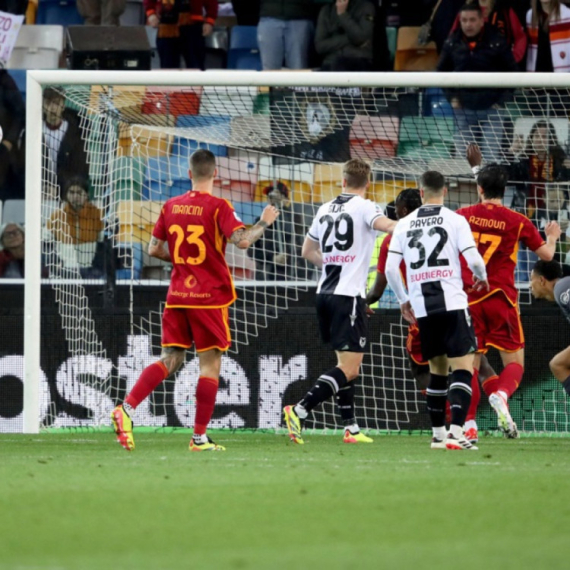



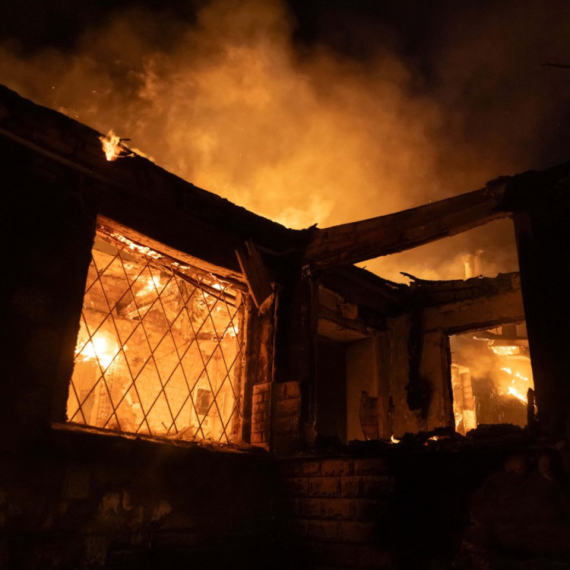
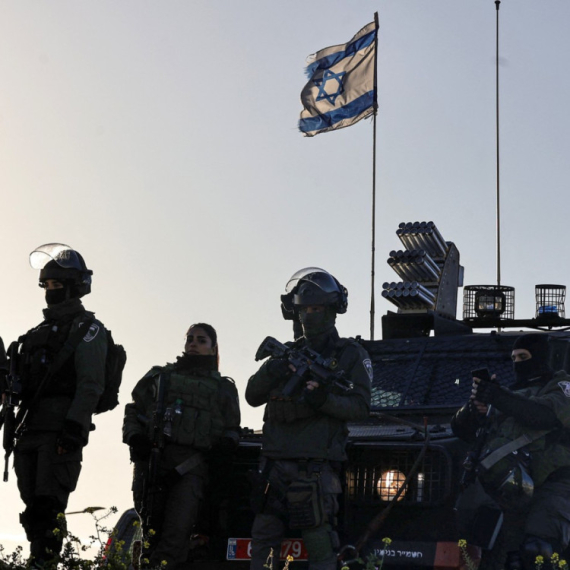
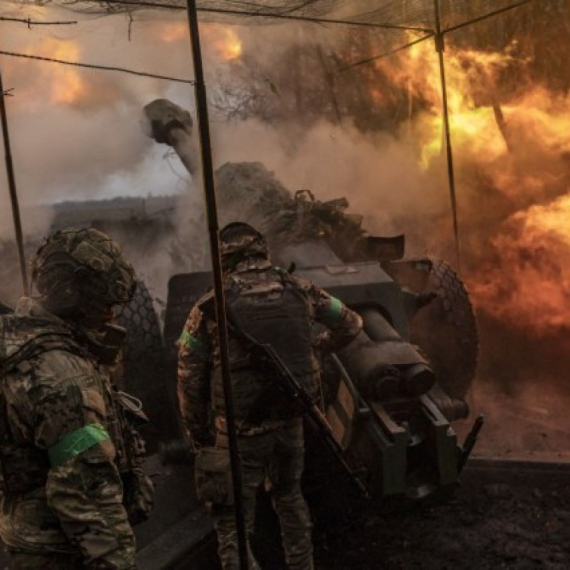
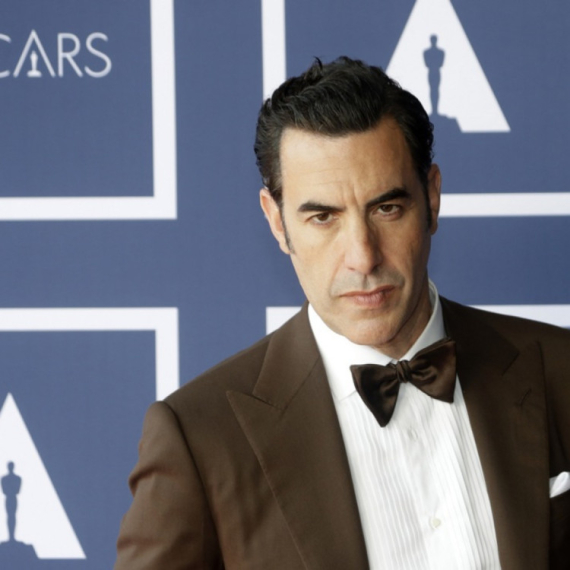





































Komentari 4
Pogledaj komentare